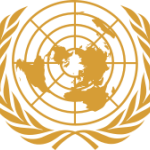- Domeniu: NGO
- Number of terms: 31364
- Number of blossaries: 0
- Company Profile:
The United Nations Organization (UNO), or simply United Nations (UN), is an international organization whose stated aims are facilitating cooperation in international law, international security, economic development, social progress, human rights, and the achieving of world peace.
Naturally occurring assets, such as land and certain uncultivated forests and deposits of minerals that are needed for production but have not themselves been produced. They can be economic or environmental. See economic assets and environmental assets.
Industry:Environment
Large natural areas not materially altered by human activity where extractive resource uses are not allowed and whose purpose is to protect nature and scenic areas of national and international significance for scientific, educational and recreational use.
Industry:Environment
Proliferation of marine plankton that is toxic and often fatal to fish. This natural phenomenon is stimulated by phosphorus and other nutrients that are discharged into waterways by human beings. The colour of the tide can be red, yellow, green or brown.
Industry:Environment
Purification of surface water for domestic use by passing it very slowly through sand beds which results in the satisfactory removal of chemical and biological pollutants from the water. It is a very old form of filtration but still used frequently today.
Industry:Environment
Deterioration in environmental quality, beyond safe absorption or regeneration by environmental media, from ambient concentrations of pollutants and from other activities and processes such as improper land use and natural disasters. See also air pollution.
Industry:Environment
Part of an ecosystem that determines the existence, abundance and evolution of a particular population. The term frequently refers to the functions of natural systems essential to human survival, including the provision of oxygen, food, water and so forth.
Industry:Environment
Recording of images of the Earth's surface from aircraft and satellites and processing and analysing of these images to obtain information needed for inventories of natural resources, assessments of natural disasters, preparation of maps, and so forth.
Industry:Environment
Monetary value of the quantitative depletion (beyond replenishment or regeneration) of natural assets by economic activities. Depletion of natural resources results from their uses as raw materials in production or directly in final (household) consumption.
Industry:Environment
Pool (reservoir) that absorbs or takes up released carbon from another part of the carbon cycle. For example, if the net exchange between the biosphere and the atmosphere is towards the atmosphere, the biosphere is the source and the atmosphere is the sink.
Industry:Environment
Integrative concept that comprises (a) physical components of shelter and infrastructure and (b) services to which the physical elements provide support, that is to say, community services such as education, health, culture, welfare, recreation and nutrition.
Industry:Environment
